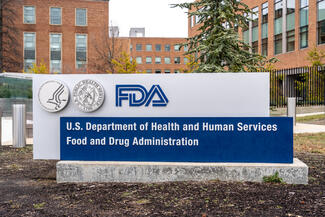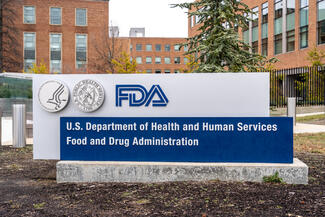Phase 2 Trial Finds Risdiplam Effective and Safe in Newborns With SMA
Infants with presymptomatic spinal muscular atrophy (SMA) treated with risdiplam as early as 16 days of age had better functional and survival outcomes at 12 and 24 months compared with untreated infants with SMA from natural history studies, according to a study published in the New England Journal of Medicine.
“The impact of giving risdiplam soon after birth is quite dramatic,” said study corresponding author Richard S. Finkel, MD, of the Center for Experimental Neurotherapeutics at St. Jude Children’s Research Hospital, Memphis, Tennessee, in a news release. “By age 2, we saw most of the children who we had treated were walking and in good general health.”
The US Food and Drug Administration (FDA) initially approved risdiplam for patients with SMA aged 2 months and older. This open-label, multicenter, phase 2 study investigated the treatment in 26 infants up to 6 weeks of age with genetically diagnosed SMA before the development of clinical signs or symptoms. Infants received oral risdiplam, at a dose adjusted to 0.2 mg per kilogram of body weight, daily. The primary outcome was the ability to sit without support at month 12 in infants with 2 SMN2 copies and a baseline ulnar compound muscle action potential (CMAP) amplitude 1.5 mV or higher.
“Natural history studies have shown that the majority of infants with two SMN2 copies who are untreated would have a severe SMA phenotype (type 1), would never sit independently, would receive permanent ventilation and feeding support, or would die by 13 months of age,” researchers explained in the study.
According to the study, 81% of infants could sit unsupported for 30 seconds, 54% could stand alone, and 42% could walk alone after 12 months of daily risdiplam. Among 5 infants with 2 SMN2 copies and a baseline ulnar CMAP amplitude of at least 1.5 mV, 4 infants (80%) could sit unsupported for 5 seconds or longer.
After 24 months of treatment, all 23 infants who continued in the study were living without the need of permanent ventilation or feeding support.
In safety outcomes, 9 treatment-related adverse events were reported for 7 infants over 24 months. None were serious.
“We demonstrated in this study that with treatment shortly after birth, risdiplam maintained a good safety profile and generated a favorable clinical response,” Dr Finkel said. “I’m pleased to say that data from this study led the FDA to change the label for risdiplam ’s use, extending it to younger children.”
References























